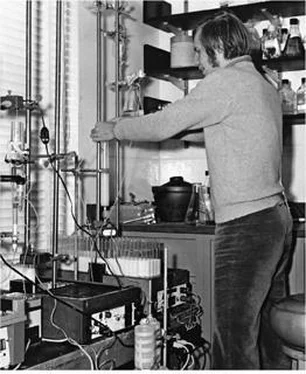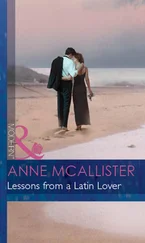James Watson - AVOID BORING PEOPLE - Lessons from a Life in Science
Здесь есть возможность читать онлайн «James Watson - AVOID BORING PEOPLE - Lessons from a Life in Science» весь текст электронной книги совершенно бесплатно (целиком полную версию без сокращений). В некоторых случаях можно слушать аудио, скачать через торрент в формате fb2 и присутствует краткое содержание. Жанр: Биографии и Мемуары. Описание произведения, (предисловие) а так же отзывы посетителей доступны на портале библиотеки ЛибКат.
- Название:AVOID BORING PEOPLE: Lessons from a Life in Science
- Автор:
- Жанр:
- Год:неизвестен
- ISBN:нет данных
- Рейтинг книги:5 / 5. Голосов: 1
-
Избранное:Добавить в избранное
- Отзывы:
-
Ваша оценка:
- 100
- 1
- 2
- 3
- 4
- 5
AVOID BORING PEOPLE: Lessons from a Life in Science: краткое содержание, описание и аннотация
Предлагаем к чтению аннотацию, описание, краткое содержание или предисловие (зависит от того, что написал сам автор книги «AVOID BORING PEOPLE: Lessons from a Life in Science»). Если вы не нашли необходимую информацию о книге — напишите в комментариях, мы постараемся отыскать её.
AVOID BORING PEOPLE: Lessons from a Life in Science — читать онлайн бесплатно полную книгу (весь текст) целиком
Ниже представлен текст книги, разбитый по страницам. Система сохранения места последней прочитанной страницы, позволяет с удобством читать онлайн бесплатно книгу «AVOID BORING PEOPLE: Lessons from a Life in Science», без необходимости каждый раз заново искать на чём Вы остановились. Поставьте закладку, и сможете в любой момент перейти на страницу, на которой закончили чтение.
Интервал:
Закладка:
The week I was in England to mark the official publication date was no time to try to see Francis and Maurice. But Peter Pauling was
typically fun to be with, and I could deliver the English version to Naomi Mitchison, to whom I dedicated The Double Helix. I saw Lawrence and Alice Bragg at their country home near the Suffolk coast. In England, most of the reviews were favorable. The most critical was by the embryologist C. H. Waddington, who thought me verging toward Salvador Dali-like manic egocentricity. By the year's end, some seventy thousand books had sold in the United States and British sales approached thirty thousand. Given its generally high praise and wide visibility, Tom Wilson thought I would be a shoo-in for the 1969 National Book Award in science. But it went to Yale's Robert Jay Lifton for Death in Life: Survivors of Hiroshima.Though I was disappointed, I no longer needed others to tell me I had written a book worth reading.
Remembered Lessons
1. Be the first to tell a good story
In 1953 the finding of the double helix by itself did not create the opportunity for an important new textbook. Any such book written the next year necessarily would have been dominated by other facts already well documented—and which still constituted most of what was known on the subject of life's nature. Twelve years had to pass before an almost complete, new story could be told of how the genetic information within DNA molecules is used by cells to order the amino acids in proteins. By contrast, the story of the quest for DNA's structure could be told immediately, although it took me almost a decade to figure out how to go about telling it. Many have had their objections to my version of characters and events, but the popular imagination was captured by it, not least on account of its having come first.
2. A wise editor matters more than a big advance
Assuming you are not being insultingly low-balled, choosing a publisher on the basis of the advance is like choosing a house builder solely on the basis of the lowest bid. An innovative book usually takes more time to write and may cost more money to produce than either you or your publisher would guess at the time of signing the contract. Better to have a seasoned and comprehending editor on your side when your manuscript takes many more years to finish than contractually stipulated. By then your editor, if not employed elsewhere, will be under pressure to curb production costs as much as possible. Your illustrations may be cut in number and fobbed off on the cheapest available commercial artist, but the chances of that are diminished if the publisher isn't already deep in the hole having paid you money you haven't yet earned. If you haven't been overpaid, your freedom to pay back the advance and take the book elsewhere is greater and so is your leverage in demanding that corners not be cut.
3. Find an agent whose advice you will follow
Publishers’ contracts invariably contain clauses that only publishing lawyers understand. Unless you want to become credentialed in this arcane specialty, another field that has seen its best days, let your prospective contract go through the hands of someone paid by you to see that you are not taken advantage of. It is too much to expect your publisher, no matter his reputation for rectitude, to look after your interests and his own equally. The 10 percent to 15 percent of the proceeds charged by a reputable agent are well worth whatever is saved trying to represent yourself.
4. Use snappy sentences to open your chapters
With so much on TV, a short, incisive first sentence is more important than ever in pulling your readers into a new chapter. Let your audience know where they will be going if they stay with you. In The Double Helix, I used openers such as “I proceeded to forget Maurice, but not his DNA photograph.” Equally important are ending sentences, in which I often sprinkled a touch of irony, as in “The remnants of Christianity were indeed useful,” or attempted Oscar Wilde-like epigrams: “The message of my first meeting with the aristocracy was clear. I would not be invited back if I acted like everyone else.”
5. Don't use autobiography to justify past
actions or motivations
A major reason for writing autobiography is to prevent later biographers getting the basic facts of your life wrong. If life has graced you with lots of memorable occasions, merely reporting them correctly and dispassionately will generate a book worth reading. Attempts at justifying your actions and apologizing for bad behavior long ago only consign your work to the dubious genre of apologetics. Better to tell it straight without vainglory or shame and let others praise or damn you, as they will inevitably do anyway.
6. Avoid imprecise modifiers
Modifiers such as very, much, largely, and possibly don't convey useful information and only reduce the impact of otherwise crisp language. Saying someone is very bright offers no further insight than just saying he is bright. To go further, you must be more creative; for example, comparing your subject's brightness (or stupidity) with that of a known person or somehow ranking him, saying for instance, “No one was brighter in the Cavendish Laboratory”—that's got to mean something.
7. Always remember your intended reader
From the start, I wanted The Double Helix to be read beyond the world of science. So I integrated paragraphs about science with ones dealing with people, their individual actions and motives. Technical facts not essential to the story I left out. Even so, I found certain highly paid lawyers annoyed by any paragraph too technical for them to understand. I savored the justice ofthat.
8. Read out loud your written words
To make The Double Helix read smoothly, I read aloud every sentence to see if it made sense when spoken. Long sentences that were hard to follow I broke into shorter ones. I also sometimes combined a few short ones, as one short sentence after another can obscure the significance of events that unfold over more than one day. Choppy language is better suited for cookbooks and lab manuals.
13. MANNERS REQUIRED FOR ACADEMIC CIVILITY
BY THE mid-1960s, more and more of the research being done in Wally's and my third-floor labs was directed toward understanding how gene functioning is regulated by specific environmental triggers. We were preoccupied by concepts emanating over the past decade from the Institut Pasteur in Paris. There Jacques Monod and Francois Jacob skillfully employed genetic analysis of the bacterium E. coli to study how its exposure to the sugar lactose induced the preferential synthesis of the lactose-degrading enzyme ß-galactosidase. They showed the existence of a lactose “repressor” whose presence negatively controls the rate at which ß-galactosidase molecules are made. Their work suggested that free lactose repressore bind to one or more regulatory regions on the ß-galactosidase gene, thereby preventing subsequent binding of the RNA-making enzyme RNA polymerase. In their 1961 Cold Spring Harbor Symposium paper, Jacob and Monod had proposed that the lactose repressor was an RNA molecule. Controversy by now existed as to whether they were correct, with others suspecting it to be a protein.
In 1965, Wally's main aim was to isolate the lactose repressor. As it was likely present only in a few molecules per bacterial cell, its identification was not a task for the faint-hearted. Two years before, Wally had spent several months unsuccessfully searching for it, believing it should specifically bind to ß-galactosidase inducers. Sensing then he was going nowhere, he turned to experiments with Julian Davies and Luigi Gorini that revealed streptomycin-induced misreadings of the
Читать дальшеИнтервал:
Закладка:
Похожие книги на «AVOID BORING PEOPLE: Lessons from a Life in Science»
Представляем Вашему вниманию похожие книги на «AVOID BORING PEOPLE: Lessons from a Life in Science» списком для выбора. Мы отобрали схожую по названию и смыслу литературу в надежде предоставить читателям больше вариантов отыскать новые, интересные, ещё непрочитанные произведения.
Обсуждение, отзывы о книге «AVOID BORING PEOPLE: Lessons from a Life in Science» и просто собственные мнения читателей. Оставьте ваши комментарии, напишите, что Вы думаете о произведении, его смысле или главных героях. Укажите что конкретно понравилось, а что нет, и почему Вы так считаете.












